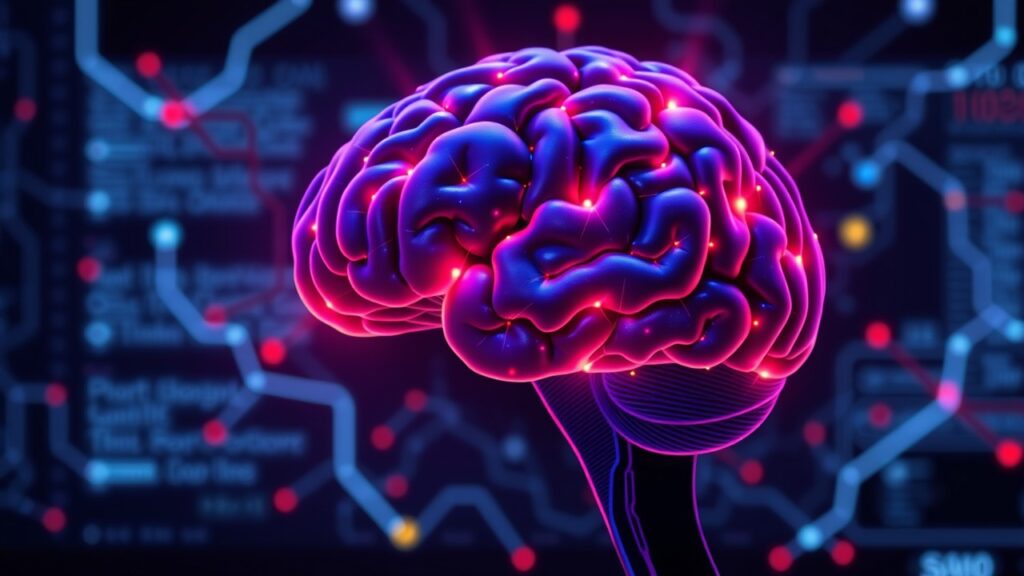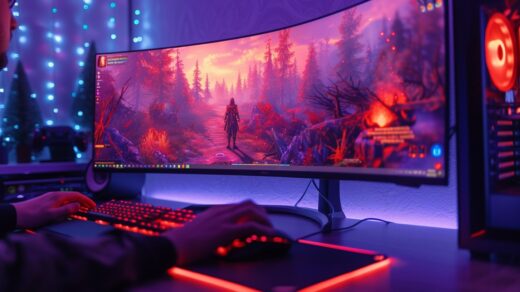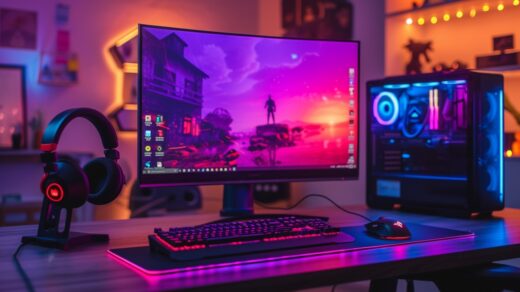Did you know that there are over 3 billion gamers worldwide? That’s nearly 40% of the global population! It’s no wonder that researchers are increasingly interested in how all this gaming affects our brains.
As someone who’s been gaming since I could hold a controller, I’ve always wondered about the impact of my favorite hobby on my mind. Let’s dive into the fascinating world of neuroscience and gaming to explore how video games are transforming our cognitive abilities!
The Neuroscience Behind Gaming
Remember when your parents told you video games would rot your brain? Well, turns out they were way off! Gaming actually activates various regions of our brain in pretty incredible ways. When I’m deep into a gaming session, my brain is lighting up like a Christmas tree – and yours probably is too!

Neuroplasticity is the brain’s ability to form new neural connections, and gaming is like a workout for this process. It’s like my brain is doing push-ups every time I play!
Brain imaging studies have shown that gamers often have more grey matter in areas associated with spatial navigation, memory formation, and strategic planning compared to non-gamers. Who knew all those hours of Minecraft were actually building my brain?
Cognitive Skills Enhanced by Gaming
Let me tell you, gaming has done wonders for my problem-solving skills. Remember that one puzzle in Portal 2 that had you stumped for hours? Solving challenges like that trains our brains to think critically and approach problems from multiple angles. I’ve found myself applying these skills in real-life situations more times than I can count!
Spatial awareness is another big one. After years of navigating complex 3D environments in games, I’m pretty sure I could find my way through a maze blindfolded(that’s a joke). And don’t even get me started on memory improvement – keeping track of complex storylines, character relationships, and game mechanics is like a constant memory workout.
Multitasking? Check. Task-switching? Double-check. Games often require us to juggle multiple objectives and switch between tasks rapidly. It’s like mental gymnastics, and I’ve definitely felt the benefits in my day-to-day life.
Oh, and let’s not forget hand-eye coordination. Those precise movements required in fast-paced games have given me ninja-like reflexes. Okay, maybe not ninja-like, but I can definitely catch falling objects way better than I used to!
Types of Games and Their Cognitive Benefits
Different genres of games offer unique cognitive benefits. Action games, with their fast-paced gameplay, can improve our processing speed. I remember being terrible at first-person shooters, but over time, I noticed my reaction times improving dramatically.
Strategy games are fantastic for sharpening decision-making skills. Games like Age of Empires and Civilization require you to think several steps ahead and consider multiple factors – it’s like chess on steroids! I’ve found myself applying these strategic thinking skills in work situations, and planning projects more effectively.
Let’s not underestimate the power of role-playing games in developing emotional intelligence. Navigating complex character interactions and moral dilemmas in games like Red Dead Redemption 2 has genuinely helped me better understand different perspectives in real life.
The Dark Side: Potential Negative Effects
Now, I’d be remiss if I didn’t address some of the potential downsides of gaming. Like anything, too much of a good thing can be harmful.
Gaming addiction is a real concern, and it can have serious impacts on the brain’s reward system. I’ve had my moments of playing “just one more turn” until the sun came up – not great for my sleep patterns or overall health!
The debate about violent games and aggression is ongoing. While I personally haven’t experienced increased aggression from playing violent games, it’s important to be mindful of the content we consume and how it might affect us.

Excessive screen time, especially close to bedtime, can mess with our sleep patterns. I learned this the hard way after too many late-night gaming sessions left me feeling like a zombie the next day. Now, I make sure to give myself a “cool-down” period before bed.
Gaming as a Cognitive Training Tool
Here’s where things get really exciting – using games as actual cognitive training tools! Brain training games have become popular, but the jury’s still out on how effective they really are. From my experience, they can be fun, but I’m not sure if they’ve made me any smarter.
Educational games, on the other hand, have shown some promising results. I’ve learned complex historical facts through Assassin’s Creed in ways that textbooks never managed. It’s pretty amazing how games can make learning more engaging and memorable.
Gaming is also finding its way into rehabilitation and therapy. From helping stroke patients regain motor control to assisting those with ADHD in improving focus, the applications are truly inspiring. It makes me wonder what other therapeutic uses we might discover in the future.
The Future of Gaming and Cognitive Enhancement
Speaking of the future, hold onto your controllers because things are about to get wild! Virtual and augmented reality are opening up entirely new possibilities for cognitive training. Imagine a world where you can practice real-life skills in a fully immersive virtual environment – the potential for learning and growth is mind-blowing!
AI-powered adaptive games are another exciting frontier. These games can adjust their difficulty and content based on your individual cognitive needs, providing a personalized brain training experience. It’s like having a personal trainer for your mind!
The applications in education and professional development are vast. I can see a future where complex skills are taught through immersive gaming experiences, making learning more effective and, dare I say, fun!
Conclusion
As we’ve seen, video games are far more than just entertainment – they’re powerful tools that can transform our minds and enhance our cognitive abilities. From improving problem-solving skills to boosting memory and even helping in therapy, the impact of gaming on our brains is profound and far-reaching.
But like any powerful tool, it’s all about how we use it. Mindful, balanced gaming can offer significant cognitive benefits, while excessive or unhealthy gaming habits can lead to negative effects. It’s up to us to game responsibly and harness the positive potential of this incredible medium.
So, the next time someone tells you you’re wasting time playing video games, you can confidently tell them you’re actually giving your brain a workout! And hey, why not share your own experiences with gaming and cognitive skills in the comments? I’d love to hear how gaming has impacted your mental abilities. Game on, and may your cognitive skills continue to level up!



